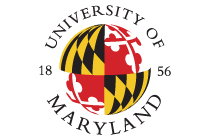Umd To Solve Global Language Problems At New Language Science Center
September 27, 2013

UMD demonstrates benefit of humanities—science collaboration with launch of Maryland Language Science Center.
COLLEGE PARK, Md. – The University of Maryland is launching a campus-wide, interdisciplinary research center designed to advance a deep understanding of language to promote human and technological solutions to real world problems.
The Maryland Language Science Center will combine the brain trust of the world's broadest and most integrated community of language scientists to connect answers to deep scientific problems—such as understanding how our brains make the richness of human language(s) possible—with solutions to real-world problems involving language in education, technology, health and security.
The center is a collaborative effort involving more than 200 language scientists, drawn from 16 departments and centers in six colleges across the university.
"Language is the foundation of what makes humans distinctive as a species. Without it, society, culture, and technology would simply not be possible," says Colin Phillips, a UMD professor of linguistics and director of the Maryland Language Science Center. "The formation of this new center will help us solve a variety of complex research problems that require the diverse expertise of faculty and students across the entire university."
Building on the established work of language scientists at the university, the new center will solve a variety of pressing global problems. Some of this work includes early identification of language disorders in infants; narrowing education achievement gaps caused by ‘language poverty’; and building technology for information extraction and for real-time translation systems that emulate the feats of simultaneous interpreters.
"With the creation of the new Maryland Language Science Center, we are focusing on an innovative, interdisciplinary approach to language science and making it one of the university's strategic priorities," says Mary Ann Rankin, UMD's senior vice president and provost. "Through this unique collaborative model between the humanities and sciences, we will be able to create connections across campus between traditionally disparate areas and secure our spot at a global leader in language science research."
The Language Science Center will also serve as an incubator for development of new research areas that intersect with language, such as culture, genetics, automatic speech recognition, and K-12 language education.
To learn more about the Maryland Language Science Center, visit www.languagescience.umd.edu/launch.
About the University of Maryland
The University of Maryland is the state’s flagship university and one of the nation's preeminent public research universities. A global leader in research, entrepreneurship and innovation, Maryland is ranked No. 21 among public universities by U.S. News & World Report and No. 14 among public universities by Forbes. The Institute of Higher Education, which ranks the world’s top universities based on research, puts Maryland at No. 38 in the world, No. 29 nationally and No. 13 among U.S. public research institutions. The university is also one of the top 10 highest-rated D.C.-area employers, according to Glassdoor.com. Its faculty includes three Nobel laureates, two Pulitzer Prize winners, 49 members of the national academies and scores of Fulbright scholars. The university is recognized for its diversity, with underrepresented students comprising one-third of the student population.

